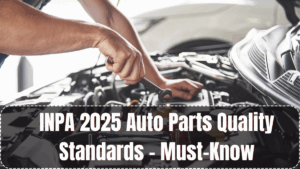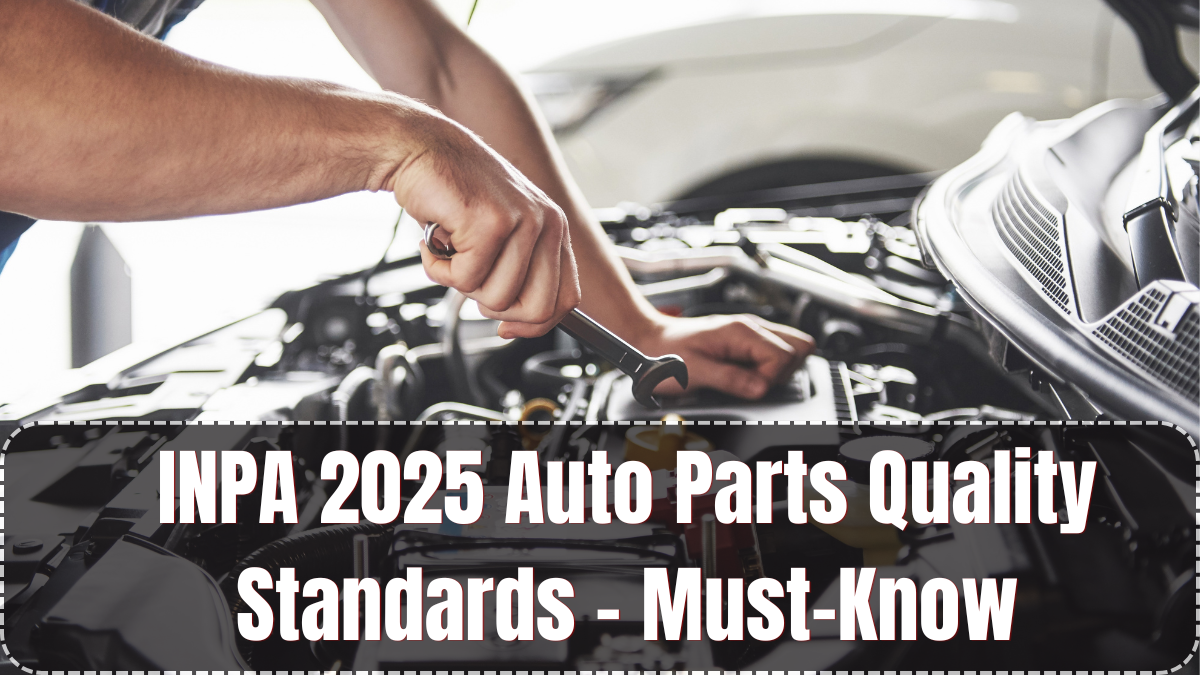The Indian auto components sector is undergoing a major transformation in 2025 with the implementation of INPA 2025 Auto Parts Quality Standards. The Indian National Parts Authority (INPA) has released updated certification benchmarks to align with global ISO specifications, aiming to ensure safety, consistency, and durability in every vehicle component manufactured or imported in India.
Whether you’re an OEM, aftermarket supplier, or a car owner, understanding these new quality benchmarks is crucial. These standards are meant to enhance the quality of both performance parts and regular replacements, improving customer satisfaction and road safety.

What’s New in the 2025 Auto Parts Standards?
The Auto Parts Quality Standards 2025 bring a much-needed update to outdated certifications. INPA has worked with industry stakeholders to include:
-
Mandatory component traceability using digital QR codes
-
Material integrity testing for critical parts like brake pads, steering arms, and suspensions
-
Standardized tolerances for nuts, bolts, gears, filters, and radiators
-
High-temperature testing and corrosion resistance compliance
-
Emissions-related components now require green compliance certification
These new parameters apply across two- and four-wheeler markets, and for both petrol and electric vehicles. The move comes amid growing concerns about counterfeit and substandard parts in the market.
Categories Covered Under the New INPA Guidelines
INPA has segmented Auto Parts Quality Standards 2025 into the following categories:
-
Safety-Critical Parts: Brake discs, pads, steering systems, suspension arms, seat belts
-
Powertrain Components: Engine valves, gaskets, fuel injectors, filters
-
Electric Vehicle Parts: Battery cooling systems, EV-specific gear assemblies, rotors
-
Interior/Comfort Systems: AC components, infotainment wiring harnesses, seat mounts
-
Chassis & Structural Parts: Control arms, bushings, cross-members, shock absorbers
Each category has its own sub-standard and certification process, monitored by INPA and ISO auditors.
How Will This Impact the Auto Industry in India?
The Auto Parts Quality Standards 2025 are expected to:
-
Improve export quality of Indian-manufactured parts
-
Reduce accidents caused by faulty or counterfeit components
-
Enhance consumer confidence in aftermarket and online purchases
-
Support Make in India by encouraging ISO-certified domestic production
-
Bring uniformity across brands, suppliers, and service networks
Manufacturers will need to submit batch reports and pass multiple quality audits. Products failing to meet INPA standards will be blacklisted from government and fleet procurements.
What Manufacturers & Buyers Should Do
If you’re a manufacturer, you must:
-
Register your product lines with INPA for certification
-
Submit periodic lab test reports from NABL-accredited labs
-
Implement QR-based traceability on packaging
If you’re a car owner or mechanic buying parts, look for:
-
INPA 2025 certification mark
-
QR codes to check batch and quality status
-
Purchase from authorized retailers or brand outlets
These small steps will ensure you’re getting parts that are safe, reliable, and long-lasting.
FAQs
What is INPA?
INPA stands for Indian National Parts Authority. It is the nodal body responsible for defining and monitoring component standards in the Indian automotive sector.
Are these standards mandatory?
Yes. From July 2025, all new and aftermarket parts in specific categories must follow the updated Auto Parts Quality Standards 2025.
How can I verify if a part is certified?
You can scan the QR code printed on the packaging. It will lead to an INPA portal showing batch number, material specs, and compliance status.
Will these standards increase part prices?
Slightly. Certified components may cost 5–8% more but offer greater safety and longer lifespan, reducing the need for frequent replacements.
What happens if a non-compliant part is sold?
Selling substandard or uncertified parts post-July 2025 can result in fines, blacklisting, or legal action under the Consumer Protection Act.
Click here to know more.
